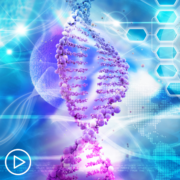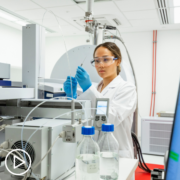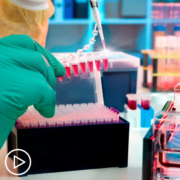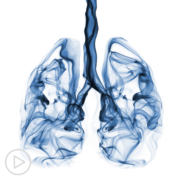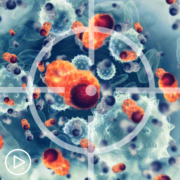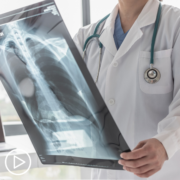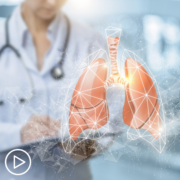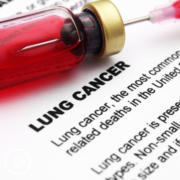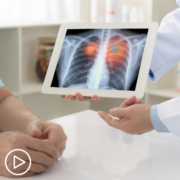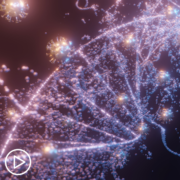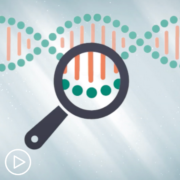Tumor Genetics vs. Family Genetics in Lung Cancer: What Is the Difference
Tumor Genetics vs. Family Genetics in Lung Cancer: What is the Difference? from Patient Empowerment Network on Vimeo.
What do lung cancer patients need to know about genetic testing? Dr. Lecia Sequist explains the two types of genetic testing and how the test results are used to create optimal treatment plans for personalized care.
Dr. Sequist is program director of Cancer Early Detection & Diagnostics at Massachusetts General Hospital and also The Landry Family Professor of Medicine at Harvard Medical School.
[ACT]IVATION TIP:
“…if you’ve been diagnosed with cancer, you should talk to your doctor about whether you should get genetic testing, either of your cancer cells or of your familial genetic background. And sometimes the answer will be yes to both those. But know that there are two different types of genetic testing.”
Download Resource Guide | Download Resource Guide en español
See More from [ACT]IVATED NSCLC
Related Resources:
Transcript:
Lisa Hatfield:
Dr. Sequist, can you please explain what genetic testing is for cancer patients?
Dr. Lecia Sequist:
Yeah. This can be a really complicated area, so I’m so glad you asked me this question. I think genetic testing basically is looking at the genes. So inside each cell in our body, there are…there’s DNA, which is the genes, and the DNA is kind of like an instruction manual for your cells, and like any instruction manual it has different pages, it has different chapters and individual words. And when they’re doing genetic testing, they’re looking to see if any of those chapters or pages or words have a typo or maybe were deleted, sometimes a whole page or a whole chapter is deleted, or sometimes a chapter is picked out of where it’s supposed to go and shoved in another part of the book. And looking for these different kinds of mistakes or edits in the genes is what genetic testing does. But we can do genetic testing on different parts. When you’re talking about a patient who has cancer, there’s basically two different areas that can be tested genetically. One is the patient’s healthy body, the genes they were born with, that they inherited from their parents, that they’ve had their whole life or they could pass on to their children if they have children. And so that type of genetics is called the germline genetics, but it basically is the type of genes you can get from your parents or pass on to your children.
If you have been diagnosed with cancer, there’s a separate set of DNA, set of genetic testing, which is done on the cancer cells. And a lot of times those genes have not been with you your whole life, they just came up at the time that the first cancer cell appeared in your body. And they may be different than the germline genes you inherited from your parents. And so depends on the type of cancer that you have, there are some types of cancer where it is very common to look at the germline cancer gene…sorry, the germline genes to see if you have a predisposition for cancer. This is done a lot of times in breast and ovarian cancer and sometimes with colon cancer, where we know there are genes that can run in families that can predispose people to getting cancer. And the reason that’s done, if you’re diagnosed with cancer and they wanna check your familial genes, it’s because they wanna know if other people in your family might be at risk for the same type of cancer. Does this have implications for how your sister should be treated medically or your child?
Separately for lung cancer, for example, which I treat, we’re usually doing genetic testing on the cancer, and we’re looking at what’s making that cancer cell tick. Are there treatments, are there different drugs or therapies that we can give that will kill the cancer based on the genes that are in the cancer? And so that tumor cancer genetic testing is often called genotyping or it’s testing the somatic, which just means the cancer cells, the somatic genetic testing. But it’s complicated, and I think people, rightfully so, get confused about all these different types of genetic testing. I guess my activation tip for this question would be, if you’ve been diagnosed with cancer, you should talk to your doctor about whether you should get genetic testing, either of your cancer cells or of your familial genetic background. And sometimes the answer will be yes to both those. But know that there are two different types of genetic testing.
Share Your Feedback:
Create your own user feedback survey







